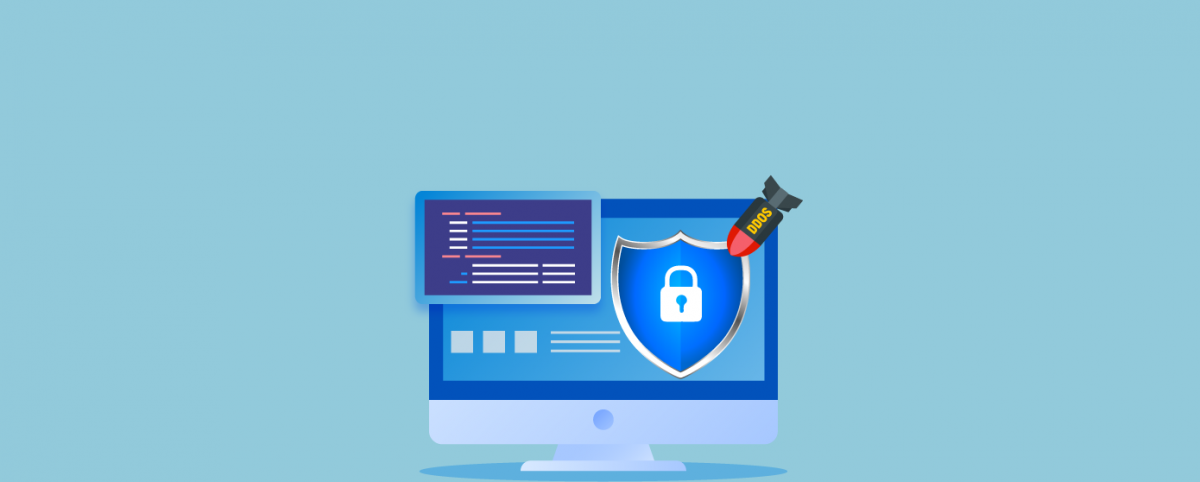Why Do You Need Cloud-Based DDoS Protection?
The cloud offers unparalleled flexibility and scalability, from data storage to maintaining an online presence. However, this increased reliance on cloud infrastructure also brings heightened risks, particularly from DDoS attacks.
Recent incidents underscore the urgent need for robust DDoS protection. For instance, the HTTP/2-based DDoS attack peaked last August, reaching over 398 million requests per second.
Such incidents reveal vulnerabilities in cloud environments, especially at the application layer, which traditional on-premise DDoS defenses cannot adequately address. Monitoring DDoS symptoms early is critical to protecting cloud-hosted applications from disruption.
This blog explores why cloud-based DDoS protection is essential, the different protection options available, and the advantages and drawbacks of each.
What is Cloud-Based DDoS Protection?
Cloud-based DDoS protection is a security solution that leverages the power of cloud infrastructure to defend against DDoS attacks. Unlike traditional on-premises DDoS protection, which relies on physical hardware and local resources, cloud-based solutions use distributed cloud resources to detect, mitigate, and absorb DDoS traffic before it reaches the target network or application.
Benefits of Cloud-Based DDoS Protection
Scalability and Flexibility
Cloud-based DDoS protection leverages the extensive infrastructure of cloud service providers (CSPs), offering unparalleled scalability. Unlike on-premises solutions, cloud-based protection can dynamically scale to absorb and mitigate large-scale attacks, ensuring uninterrupted service availability.
Advanced Threat Detection and Mitigation
Cloud-based solutions employ advanced threat detection and mitigation techniques, including ML algorithms and behavioral analytics. These capabilities enable the detection of sophisticated application-layer DDoS attacks that traditional on-premises solutions might miss.
Global Distribution
Cloud-based DDoS protection services are globally distributed, allowing for the mitigation of attacks closer to their source. This reduces latency and improves the efficiency of the mitigation process, ensuring that services remain available to legitimate users.
Cost Efficiency
By utilizing the extensive resources of CSPs, cloud DDoS protection offers a cost-effective solution compared to the significant capital investment required for on-premises solutions. Additionally, cloud-based services are typically offered on a pay-as-you-go basis, providing flexibility in managing costs.
Expertise and Focus
Cloud DDoS mitigation providers specialize in DDoS mitigation, offering higher expertise and experience. Internet Service Providers (ISPs), while capable, offer DDoS protection as a complementary service within a larger portfolio, potentially diluting their focus.
Flexible Deployment
Cloud-based providers can tailor their services to fit the unique needs of large enterprises, offering greater flexibility compared to the more rigid, standardized services of ISPs.
Essentail Consideration for Cloud-Based DDoS Protection
When considering cloud-based DDoS protection, organizations have two primary options: CSPs’ native DDoS protection services and third-party DDoS protection solutions.
CSPs’ DDoS Protection Services
Most major cloud providers offer native DDoS protection services integrated with their cloud infrastructure. CSPs offer DDoS protection that is easy to set up and manage directly from their dashboards.
Leveraging their vast infrastructure, CSPs can absorb and mitigate large-scale attacks, ensuring service availability. Basic protection often comes free, providing good coverage for common network-layer attacks, while advanced tiers offer more robust defense but at an additional cost.
Despite these advantages, CSPs’ DDoS protection has some drawbacks. They may lack the specialized expertise to defend against advanced attack vectors, particularly at the application layer, and their basic protection tiers do not offer SLA guarantees.
Advanced tiers come with “best effort” SLAs, primarily focused on uptime, with remediation often limited to service credits. Additionally, there is no consistency across different cloud environments, requiring separate solutions for hybrid or multi-cloud setups, and limited customization options may not meet the needs of organizations with complex requirements.
Furthermore, the costs for advanced DDoS protection can add up quickly, making it an expensive option for comprehensive coverage. For consistent and comprehensive protection in hybrid or multi-cloud setups, additional or third-party solutions might be necessary.
Specialized Cloud-based DDoS Mitigation Solutions
Third-party DDoS mitigation solutions, provided by independent cybersecurity experts, are specialized solutions focused on protecting online services from DDoS attacks. These solutions offer advanced tools and expertise for detecting and mitigating attacks, ensuring minimal impact on operations.
The primary advantages include superior protection due to the specialized knowledge, consistency across hybrid and multi-cloud environments, and 24/7 monitoring with expert support.
They also offer flexible deployment options, including always-on and on-demand services, and typically provide better SLAs compared to CSPs, with specific metrics for attack detection and mitigation times.
Dedicated DDoS mitigation solutions like AppTrana WAAP are best suited for organizations needing dedicated, advanced protection, especially for mission-critical applications and those frequently targeted by attacks.
Conclusion
There is no one-size-fits-all solution, and organizations should carefully evaluate the advantages and drawbacks of various DDoS protection options to determine which services best align with their specific security needs. For a detailed analysis of features, benefits, and drawbacks, check out our blog on the 13 best DDoS protection software in the market.
Under a DDoS attack right now? Get emergency help.
Stay tuned for more relevant and interesting security articles. Follow Indusface on Facebook, Twitter, and LinkedIn.

 July 8, 2024
July 8, 2024





